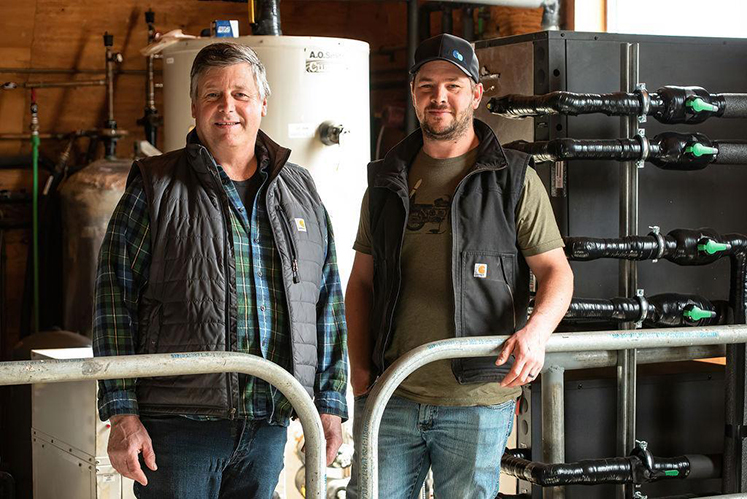Tractors leaking oil, broken alley scrapers, and seized vacuum motors are easily diagnosed and will be fixed in due time—but what if the farmer is the one that is feeling broken?
With Bell Let’s Talk Day just around the corner, it’s important to highlight the discussion on mental wellness within the agricultural industry. Social media helps us destigmatize mental health, but ownership of mental wellness starts with the individual.
As a jack of all trades, farmers develop many skills: mechanic, caregiver, steward of the land, and industry advocate. But what if–after the work is done–the farmer themselves is feeling broken?
The farm and mental health
In 2016, a study by the University of Guelph was conducted on more than 1100 agricultural producers across Canada. The results indicated that a staggering 35% of farmers met the definition for depression and nearly 60% felt high levels of anxiety. This is no wonder, considering an array of ongoing pressures: changes in the weather, political upheaval, portrayal in the media, etc.
The stoic image of a farmer centres on the idea that one should be able to bear one’s own struggles. The philosophy of the occupation has long been “suck it up and move on”. The desire to achieve and the failure to reach goals could also lead to depressive states. Success is often limited to factors beyond human control; so a farmer might overcorrect, and in the end, find themselves burnt-out and depressed.
They might even hear the phrase, “You’re crying over spilled milk.”
Reaching out for help isn’t always a simple matter. There is a stigma that mental health can affect your brand: if you are not doing well, then it is assumed that your business is not doing well either. However untrue this perception may be, it is reflected in the survey results: 40% of respondents felt uncomfortable getting professional help because of what “people might think”.
If you do not know or are unsure of the signs or symptoms of depression, it can manifest in many ways, including trouble concentrating and remembering details. Other symptoms may include fatigue, irritability, loss of interest in activities, and insomnia, as well as physical aches and pains.
Community and well-being
A farmer’s heavy workload, combined with a small community and isolated work can be factors contributing to depression and anxiety. When you are alone, the stress of the day can continuously brew and accumulate pressure. Alone in the barn, you are your own boss: you are accountable to you and only you. The loneliness can be hard.
In Australia, a study was completed by 417 respondents who suffered depression, two-thirds of whom identified that they sought care from their friends as a social or emotional support. Of those who participated in the study, respondents said they felt more comfortable investing in close relationships because they felt more compassion and empathy. As a farmer, you become accustomed to being alone, but interacting with your neighbours and friends is more compatible with mental wellness.
Resolve
When machinery is broken, it takes money, parts, and time to fix. When a cow is sick, it takes medicine, time, and care to restore its health. Similarly, if the heavy cloud of mental illness sets in to you or others, there is a need to invest.
The Do More Agriculture Foundation, a non-for-profit based out of Saskatchewan, promotes mental health education and mental fitness within communities. In their most recent blog post, the Foundation discusses the de-stigmatization of mental health, and how positive affirmations affect an individual’s wellbeing. The highlighting factor? It starts with you.
January 29th is Bell Let’s Talk Day; if your friends and neighbours are not talking about mental health, start the conversation. The more open you are with your friends and neighbours, the more willing they will be to share with you.
There may also be time to talk, to be upset, or get some rest, because sometimes “spilled milk” is more than that: it’s your livelihood or your job, and why you wake up every day. It doesn’t matter what it is. You don’t need permission to be upset over spilled milk.
Call Out
If you think that you are the only one struggling, think again. A Farm Stress Hotline in Saskatchewan reported in 2011, a total of 330 calls made to the hotline, a number just shy of one call per day. Just last year, the hotline peaked at 59 calls for the month of July.
If you find that you are struggling or need someone to talk to, the BC Canadian Mental Health Association’s Mental Health Support Line has counselors available 24 hours a day at 310-6789.



